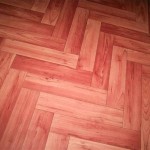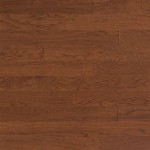Precast Concrete Flooring Details: A Comprehensive Overview
Precast concrete flooring represents a structural engineering solution where concrete floor elements are manufactured in a controlled factory environment and then transported to the construction site for installation. This methodology offers numerous advantages over traditional cast-in-place concrete, including accelerated construction schedules, improved quality control, and reduced on-site labor requirements. Understanding the detailed aspects of precast concrete flooring is crucial for architects, engineers, and contractors involved in building design and construction.
The precast manufacturing process allows for precise dimensional control and the incorporation of various design features, such as integrated conduits and recesses. This precision minimizes on-site adjustments and ensures a smoother, faster installation process. Furthermore, the controlled environment facilitates optimal curing conditions, resulting in concrete elements with higher strength and durability compared to those cured in the field.
There are several types of precast concrete flooring systems, each suited for specific applications and structural requirements. The selection of the appropriate system depends on factors such as span length, load-bearing capacity, fire resistance requirements, and aesthetic considerations. Careful consideration of these factors during the design phase is essential for ensuring the long-term performance and cost-effectiveness of the flooring system.
The following sections will delve into the key aspects of precast concrete flooring, including the different types of systems, design considerations, manufacturing processes, installation procedures, and quality control measures. A thorough understanding of these details is paramount for successfully implementing precast concrete flooring in a variety of construction projects.
Types of Precast Concrete Flooring Systems
Several distinct types of precast concrete flooring systems cater to diverse structural and architectural needs. Each system possesses unique characteristics regarding span capabilities, load-bearing capacities, and installation methodologies. The selection of the optimal system is contingent upon project-specific requirements and design constraints.
Hollowcore Slabs: Hollowcore slabs are characterized by longitudinal voids that reduce their weight while maintaining structural integrity. These voids also facilitate the integration of electrical and mechanical services. Hollowcore slabs are typically used for medium to long-span applications in residential, commercial, and industrial buildings. Their relatively lightweight nature simplifies handling and installation, contributing to faster construction timelines.
Solid Slabs: Solid slabs, as the name suggests, are solid concrete elements without any voids. They offer excellent load-bearing capacity and are often used in applications where concentrated loads are anticipated. Solid slabs are commonly employed in industrial floors, parking structures, and other heavy-duty applications. Their simple design and robust nature make them a reliable choice for demanding structural requirements.
Double Tees: Double tees are characterized by two vertical ribs connected by a horizontal flange, resembling the letter "T" repeated twice. This configuration provides exceptional strength and stiffness, allowing for long spans and high load-carrying capacity. Double tees are frequently used in parking garages, warehouses, and auditoriums. Their ability to span long distances with minimal intermediate supports makes them a cost-effective solution for large open spaces.
Single Tees: Similar to double tees, single tees feature a single vertical rib connected to a horizontal flange. They offer a balance between span capability and load-bearing capacity, making them suitable for a range of applications, including office buildings and retail spaces. Single tees are often selected when a slightly shorter span is required compared to double tees.
Plank Slabs: Plank slabs are relatively thin, rectangular precast elements that are typically used for short to medium-span applications. They are often employed in residential and light commercial construction. Plank slabs are easy to handle and install, making them a popular choice for projects with limited space or tight schedules.
Design Considerations for Precast Concrete Flooring
Designing with precast concrete flooring requires careful consideration of various factors to ensure structural integrity, serviceability, and aesthetic appeal. These considerations encompass load calculations, span lengths, connection details, and fire resistance requirements. A comprehensive design approach is essential for achieving optimal performance and longevity of the flooring system.
Load Calculations: Accurate load calculations are fundamental to the design of any structural element, including precast concrete flooring. These calculations must account for both dead loads (the weight of the flooring system itself and any permanent fixtures) and live loads (variable loads due to occupancy, furniture, and equipment). Proper load assessment ensures that the flooring system can safely withstand all anticipated loads throughout its service life. Furthermore, dynamic loads, such as those from machinery or vehicular traffic, require specific consideration and analysis.
Span Lengths: The span length, or the distance between supporting elements, significantly influences the selection of the appropriate precast concrete flooring system. Different systems have varying span capabilities, with double tees generally capable of spanning the longest distances and plank slabs typically limited to shorter spans. Selecting a system that can efficiently span the required distance is crucial for minimizing the number of supports and maximizing usable space.
Connection Details: Connection details are critical for transferring loads between precast elements and supporting structures. Proper connection design ensures the structural integrity of the entire system and prevents premature failure. Various connection methods are employed, including mechanical connectors, welded connections, and grouted joints. The selection of the appropriate connection method depends on the specific structural requirements and the type of precast element being used. Shear connections, moment connections, and bearing connections are examples of specific connection types that may be required.
Fire Resistance: Fire resistance is a paramount consideration in building design, and precast concrete flooring offers inherent fire-resistant properties. The thickness of the concrete and the presence of any reinforcing steel contribute to the fire resistance rating of the flooring system. Building codes typically specify minimum fire resistance requirements for different occupancy types, and the precast concrete flooring system must be designed to meet these requirements. Fire-resistant coatings and other protective measures may be necessary to enhance the fire resistance of the system.
Acoustic Performance: Adequate sound insulation between floors of a building is often desired, especially in residential and commercial buildings. The noise reduction achieved is a function of the material density, and the way pre-cast elements are connected. Design considerations such as incorporating additional insulation layers or resilient flooring materials may be required to enhance the acoustic performance of precast concrete flooring.
Manufacturing and Installation of Precast Concrete Flooring
The manufacturing and installation processes for precast concrete flooring are critical to ensuring quality, efficiency, and structural integrity. Stringent quality control measures are implemented throughout the manufacturing process, and proper installation techniques are essential for achieving the desired performance of the flooring system.
Manufacturing Process: The precast manufacturing process typically involves several key steps, including formwork preparation, reinforcement placement, concrete placement, curing, and demolding. Formwork preparation involves cleaning and coating the molds to ensure a smooth concrete surface and ease of demolding. Reinforcement placement involves precisely positioning the reinforcing steel within the formwork to provide the necessary strength and ductility. Concrete placement involves carefully pouring the concrete into the formwork, ensuring proper consolidation to eliminate air voids. Curing involves maintaining optimal temperature and humidity conditions to promote proper hydration of the cement and strength development. Demolding involves carefully removing the hardened concrete element from the formwork.
Installation Procedures: The installation of precast concrete flooring typically involves hoisting the elements into place using cranes or other lifting equipment and then connecting them to the supporting structure. Proper planning and coordination are essential for ensuring a safe and efficient installation process. The connection details must be carefully executed to ensure proper load transfer and structural integrity. Leveling and alignment of the precast elements are critical for achieving a smooth and even floor surface. Grouting of joints between precast elements may be necessary to provide a continuous and watertight surface.
Quality Control: Quality control is a critical aspect of both the manufacturing and installation processes. Regular inspections and testing are performed to ensure that the precast elements meet the specified requirements for strength, dimensions, and finish. Concrete strength testing, dimensional verification, and visual inspections are common quality control measures. During installation, inspections are performed to ensure proper connection details, leveling, and alignment. Addressing any defects or deviations from the specifications promptly is crucial for maintaining the overall quality and integrity of the flooring system.
Transportation and Handling: The transportation of precast elements from the manufacturing facility to the construction site requires careful planning and execution. The elements must be properly secured to prevent damage during transit. At the construction site, proper handling procedures are necessary to avoid damaging the elements during unloading and installation. Designated storage areas should be prepared to protect the elements from the elements and prevent contamination.

Precast Concrete Floor Systems Types Of Floors

Best 25 Precast Concrete Slabs Ideas On Plunge Pool Autocad Duvar

Historical Development Of Hollow Core Slabs Arnold Van Acker Stef Maas

Situ Concrete An Overview Sciencedirect To

Filling Cells In Nicore Planks Nitterhouse Concrete

3 Detailed Section For Precast Concrete Alternative Cc Scientific Diagram

Precast Concrete Yourhome

Precast Concrete Formwork Floor System And A Method Of Construction Plant Technology

Methods Of Precast Concrete Constructions The Constructor

Comparison Of Environmental Impacts Building Structures With In Situ Cast Floors And Precast Concrete Sciencedirect
Related Posts








